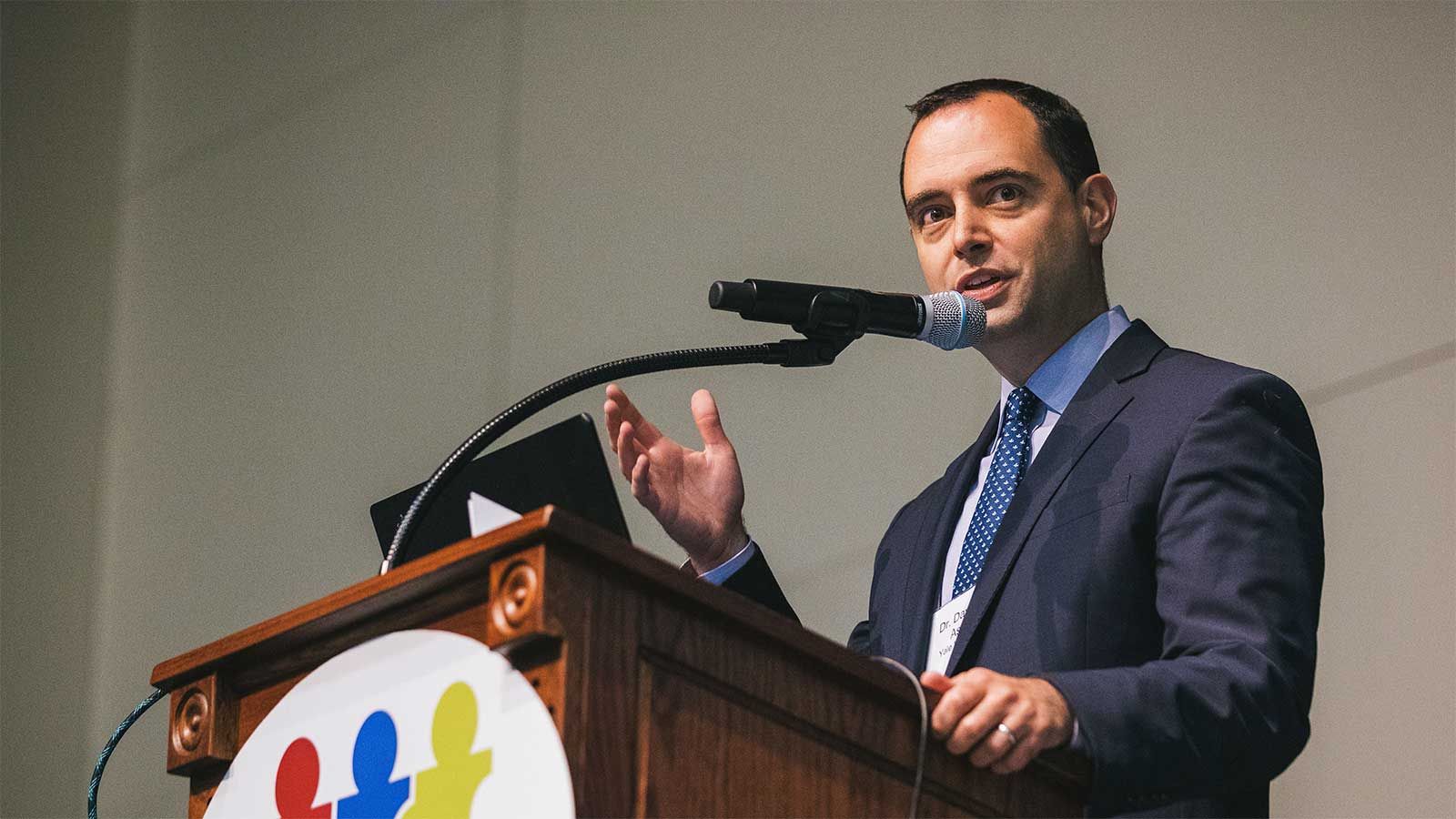SMAC Members
David Assis, MD
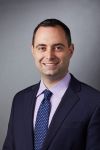
Dr. David Assis is an Assistant Professor of Medicine, Section of Digestive Diseases, Medicine Department at the Yale University School of Medicine. He received his M.D. from Jefferson Medical College followed by internship and residency at Thomas Jefferson University Hospital in Philadelphia, where he was also Chief Resident. He completed training in gastroenterology and hepatology followed by transplant hepatology fellowships at Yale University. His clinical and research interests are in autoimmune liver diseases. Specifically, he focuses on autoimmune hepatitis and primary sclerosing cholangitis through both clinical work and translational and basic research using patient bio specimens and animal models. He currently holds a NIH K08 career development award focusing on translational approaches to autoimmune hepatitis. Dr. Assis is vice-chair of the Special Interest Group (SIG) on Cholestatic and Biliary Diseases of the American Association for the Study of Liver Disease (AASLD), and is a co-leader of the clinical trials working group of the International PSC Study Group. He also serves on the Connecticut Board of the American Liver Foundation.
Annika Bergquist, MD, PhD
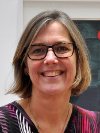
Dr. Annika Bergquist is a adjunct professor and researcher at Karolinska Institutet Stockholm, Sweden. She received her PhD from the Karolinska Institutet in 2001 with the thesis “Cholangiocarcinoma in PSC”. Dr Bergquist became adjunct professor at the Karolinska Institutet in 2013. Dr Bergquist clinical work is being a consultant in Hepatology at the Karolinska University Hospital seeing mainly patients with PSC before liver transplantation. She is leading the research group of PSC studies at Karolinska University Hospital and is the Chair of the national research network for liver disease (www.swehep.se). The research focus is on clinical studies and biomarkers in PSC.
Dennis Black, MD
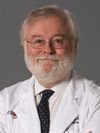
Dr. Dennis Black, a pediatric hepatologist, is the James Dustin Buckman Professor of Pediatrics and Professor of Physiology at the University of Tennessee Health Science Center, Memphis. Dr. Black serves as Director of the Children’s Foundation Research Institute of Memphis, as well as Vice President for Research for Le Bonheur Children’s Hospital and Vice Chair for Research for the Department of Pediatrics. His research and clinical interests are neonatal lipid metabolism and disorders, as well as pediatric liver disease and transplantation with a focus on pediatric PSC. He has received research funding from the NIH, FDA, industry and other sources. He has served as chair/member of several grant review committees, including those for the NIH, American Liver Foundation, NASPGHAN, and the American Heart Association. He served as a member of the Editorial Board of the American Journal of Physiology: GI and Liver Physiology from 2003 to 2009. He was Vice Chair and Chair of the American Gastroenterological Association Council Section on Obesity, Metabolism and Nutrition from 2013 to 2018 and was recipient of the Section’s Research Mentor of the Year Award in 2020. He was awarded the NASPGHAN Gerard Odell Prize for Excellence in Hepatology Research in 2018.
Christopher L. Bowlus, MD (Co-Chair)
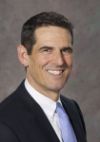
Dr. Bowlus is the Lena Valente Professor of Medicine and the Chief of the Division of Gastroenterology and Hepatology at the University of California Davis School of Medicine. He received his medical degree from St. Louis University and completed his post-graduate training in Internal Medicine at the University of California Davis and in Gastroenterology at Yale University before returning to UC Davis as a faculty member in 1998. His research in autoimmune liver diseases includes the first published study of a biologic for the treatment of primary biliary cholangitis (PBC) as well as key studies of the immunopathogenesis of primary sclerosing cholangitis (PSC). He is a member of the Steering Committees for the International PSC Study Group and Chairs the Consortium for Autoimmune Liver Disease (CALiD), a group which he founded and now includes over 20 active institutions studying PSC. He leads multiple clinical trials has been funded by the NIH, CDC, and industry. Dr. Bowlus is a Fellow of the AASLD, AGA, ACP, and RCPE.
John Eaton, MD
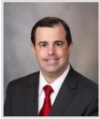
Dr. John Eaton is an Associate Professor of Medicine and Transplant Hepatologist at Mayo Clinic in Rochester, Minnesota. Dr. Eaton completed his internal medicine residency training, Chief Medical residency, Gastroenterology & Hepatology fellowship and an advanced liver transplant fellowship at Mayo Clinic in Rochester, Minnesota. Dr. Eaton also designed and completed a unique one year training program that enabled him to focus on cholestatic liver diseases and cholangiocarcinoma prior to joining the staff at Mayo Clinic in Rochester, Minnesota. Dr. Eaton’s clinical efforts are focused on seeing patients with PSC, PBC, and cholangiocarcinoma. His research focuses on clinical trials, advanced imaging studies, and improving our understanding of the natural history of PSC and methods to predict key outcomes.
Heather Francis, PhD (Co-Chair)
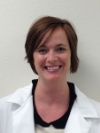
The goal of my laboratory is to investigate synergistic role that cholangiocytes and mast cells during cholestatic liver injury, specifically Primary Sclerosing Cholangitis (PSC), cholangiocarcinoma and non-alcoholic fatty liver disease (NAFLD). My lab is currently funded by both the NIH and the VA and these studies examine the link between cholangiocytes, mast cells and hepatic stellate cells during liver disease focusing primarily on PSC. In addition, we recently found that using OTC drugs that block histamine receptors (H1HR and H2HR inhibitors) decreases both PSC and cholangiocarcinoma. Further, we are particularly interested in the HDC/histamine/histamine receptor axis and the autocrine (from cholangiocytes) and paracrine (mast cells) role this axis plays in PSC, cholangiocarcinoma and NAFLD. Using genetic knockout mice, we have demonstrated that loss of HDC and/or loss of mast cell activation ameliorates liver damage including biliary hyperplasia and hepatic fibrosis that are send during PSC. Our recent studies have demonstrated that there is a synergistic relationship between cholangiocytes and mast cells and damaged, senescent cholangiocytes may be the cause for mast cell infiltration during liver damage. Our studies are clinically relevant since mast cells are found surrounding bile ducts and are activated during liver damage. In addition, we have shown that histamine levels are increased in patients with PSC, cholangiocarcinoma, NAFLD, NASH and end-stage liver disease. We are aiming to fully exploit the role of mast cells during liver disease progression using a number of approaches including genetic models and pharmaceutical targeting. Our goal includes defining molecular targets that might be translated into therapeutic options for patients suffering from liver disease.
Richard Green, MD
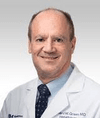
Dr. Richard Green is a Professor of Medicine in the Section of Hepatology at the Northwestern University Feinberg School of Medicine. He graduated with an undergraduate degree from Duke University and subsequently graduated from the Duke University Medical School with a degree in Medicine. He undertook his Internal Medicine training at Northwestern University, where he also served as the Chief Medical Resident. His Gastroenterology and Hepatology Fellowship training was at Brigham and Women’s Hospital at Harvard Medical School, Boston, MA. Prior to working at Northwestern, he served as an Instructor of Medicine at Brigham and Women’s Hospital and Harvard Medical School, and as an Assistant Professor of Medicine at the University of Illinois in Chicago.
Dr. Green has been actively involved in clinical, translational and basic science investigations of cholestatic liver disease and fatty liver disorders. His current research efforts focus on the unfolded protein response (UPR) in the pathogenesis of cholestatic and fatty liver diseases. He is applying UPR-based approaches to develop novel therapies for PSC and other cholestatic diseases. He is the former Chair of the Cholestatic Liver Disorders Special Interest Group (SIG) of the American Association for the Study of Liver Diseases (AASLD), and the former Chair of the Liver-Biliary Council of the American Gastroenterological Association. He also served as an Associate Editor for the journal Hepatology from 2001-2006 and from 2016-2021. He has authored over 100 original articles, book chapters and reviews on a wide range of hepatic disorders.
Bettina Hansen, PhD

Dr. Bettina Hansen is a Professor of Clinical Biostatistics at Erasmus MC, the Netherlands and Professor at IHPME at the University of Toronto, Canada. She is also an affiliated scientist at Toronto Center for Liver Disease, University Health Network, Toronto. She studied statistics and mathematics at the Institute of Mathematical Statistics at the University of Copenhagen in Denmark. Next, she completed her PhD entitled 'Statistical models of treatment effects in chronic hepatitis B and C' in the Department of Gastroenterology and Hepatology at Erasmus University Medical Center (Erasmus MC) in the Netherlands. She leads large-scale clinical research projects related to chronic hepatitis, auto-immune liver diseases and rare liver diseases in children. Her work initiating international multi-center studies, and novel application of sophisticated statistical tools have transformed the understanding, clinical management, and treatment of liver conditions around the world. The goals of her research program are to identify patients with complex diseases whose conditions will either devolve or improve with treatment, and to create pathways to drug discovery for rare, slowly progressing conditions which would otherwise be impossible to study. She founded/co-founded the real-world data network groups: Global PBC Study Group, NAPPED (network for PFIC diseases) and GALA study group for Alagille syndrome. She is a member of the International PSC study group and European Refence Network for rare diseases and scientific advisor for the PBC Foundation.
Gideon Hirschfield, MA(Oxon), MB, BChir (Cantab), FRCP, PhD
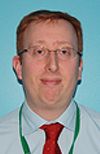
Dr. Gideon Hirschfield is the inaugural Lily and Terry Horner Chair in Autoimmune Liver Disease Research at the Toronto Centre for Liver Disease, Toronto General Hospital and Professor of Medicine in the Division of Gastroenterology at the University of Toronto. As a clinician-scientist, Dr. Hirschfield manages a broad platform of translational and trials based clinical science with the goal of advancing therapies for patients with inflammatory liver disease that prevent the need for transplantation. Dr. Hirschfield graduated from the Universities of Oxford (1994) and Cambridge (1996) and was awarded a PhD from the University of London (2006). Prior to holding his current position, he was Professor of Autoimmune Liver Disease at the University of Birmingham, and Transplant Hepatologist at University Hospitals Birmingham, UK, where he led services for autoimmune liver disease, pregnancy-associated liver disease, and Wilson disease.
Johannes R. Hov, MD
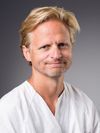
Dr. Johannes R. Hov is professor of gastroenterology and senior consultant at Department of Transplantation Medicine, Oslo University Hospital (Rikshospitalet) and University of Oslo. He received his MD from University of Oslo 2003 and a PhD on the genetics of PSC in 2011. Hov is leading the research group entitled Genomics and Metagenomics in Inflammatory Diseases. The main focus is the role of gut microbiota in PSC and how it can be utilized clinically. He is currently holding an ERC Starting Grant awarded to the project "StopAutoimmunity" and he is actively promoting clinical applications of microbiota medicine as a leader of a strategic research area on this topic at the hospital.
Dr. Hov photo credit: Oystein Horgmo, University of Oslo
Josh Korzenik, MD
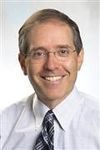
Dr. Joshua R. Korzenik is the director of the Resnek Family Center for Primary Sclerosing Cholangitis Research as well as Brigham and Women’s Hospital Crohn’s and Colitis Center and assistant professor of medicine at Harvard Medical School. He was an undergraduate at Harvard University before receiving his M.D. from Albert Einstein College of Medicine in 1987. He completed internship and residency at Beth Israel Hospital in Boston, Massachusetts. After a period involved in clinical research in India, he completed his fellowship at Yale School of Medicine where he remained on faculty before going to Washington University in St. Louis in 1997. He directed the Inflammatory Bowel Disease Center at Washington University in St Louis before coming to Massachusetts General Hospital where he co-directed the MGH IBD Center for a decade. He then moved to BWH to develop the BWH Crohn’s and Colitis, the leading IBD Center in New England and the Resnek Family Center for PSC Research. He directs an extensive research program including clinical, epidemiologic and translational research focused on the microbiome and immunology to improve our understanding of the pathophysiology of PSC in order to develop and test better, innovative therapies.
Cynthia Levy, MD
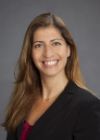
Dr. Cynthia Levy is a Professor of Medicine, board-certified in Gastroenterology (recertified in 2016) and Transplant Hepatology (certified in 2012). Dr. Levy is the Associate Director of the Schiff Center for Liver Diseases and was awarded the Arthur Hertz Endowed Chair in Liver Diseases.
Dr. Levy’s clinical research program focuses on cholestatic and autoimmune liver diseases, with emphasis on clinical trial design and conduct. She is a member of the steering committee for the International Primary Sclerosing Cholangitis Study group (IPSCSG) and serves as the Chair for the TARGET-Primary Biliary Cholangitis (PBC) national registry. Dr. Levy currently serves as a member of the Practice Guidelines Committee for the American Association for the Study of Liver Diseases (AASLD). She co-authored the new AASLD Practice Guidance document for PBC, is a member of the writing group for the EASL PSC guidance document, and has published over 120 original articles, reviews and editorials, in addition to book chapters. Dr Levy is also a site-PI for the NIH Porphyrias Consortium and a founding member of the APEX (American Porphyria Experts Collaborative).
Previously, Dr. Levy served as an Assistant Professor of Medicine with the Division of Gastroenterology, Hepatology and Nutrition at the University of Florida and the Malcolm Randall VAMC in Gainesville, FL. She was the Program Director for Transplant Hepatology Fellowship at University of Miami between 2012 and 2019.
Dr. Levy received her M.D. from Universidade Federal do Rio de Janeiro (UFRJ). She completed house staff training both at her home University and subsequently at University of Miami/Jackson Memorial Hospital, in Miami, FL. Dr. Levy completed her 3-year Gastroenterology Fellowship at Mayo Clinic in Rochester, Minnesota, and a 1-year Transplant Hepatology Fellowship at University of Florida, in Gainesville, FL.
Cara Mack, MD
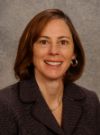
Dr. Cara Mack is a Professor of Pediatrics at the Medical College of Wisconsin and Division Chief of Pediatric Gastroenterology, Hepatology & Nutrition at Children’s Wisconsin. As a physician scientist, she has focused her basic science research studies on immune-mediated liver diseases, with a vested effort on deciphering the role of the immune system in the pathogenesis of biliary atresia (BA). Her clinical research efforts include clinical and translational studies pertaining to diagnosis and outcomes in BA and other pediatric liver diseases, including primary sclerosing cholangitis (PSC), through the NIH-funded Childhood Liver Disease Research Network (ChiLDReN). She is the Chair of the ChiLDReN PSC Working Group aimed at creating 2 studies, an observational study and a treatment trial. The overarching goal of her research endeavors is to utilize her immunology expertise to explore mechanisms underlying the pathogenesis and treatment of immune-mediated pediatric biliary and liver diseases.
Sonya MacParland, PhD

Dr. Sonya MacParland is a senior scientist in the Ajmera Transplant Centre at UHN, and associate professor in the University of Toronto’s department of Laboratory Medicine and Pathobiology and the department of Immunology. She holds a Canada Research Chair Tier 2 in Liver Immunobiology. Dr. MacParland's research program is focused on translating fundamental knowledge about the immune biology of the liver into clinical applications. Her team recently developed the first transcriptomic map of the human liver as a platform to examine how immune dysregulation drives liver diseases.
Alexander Miethke, MD

Dr. Alex Miethke is a pediatric gastroenterologist and director of the Center for Autoimmune Liver Diseases at Cincinnati Children’s Hospital. His research delves into immune mechanisms driving liver inflammation and fibrosis in children with biliary atresia or autoimmune liver disease. He and his colleagues are also looking into the genetic causes of acute and chronic liver diseases and circulating and imaging biomarkers for liver inflammation.
Yury Popov, MD, PhD

Dr. Yury Popov is an Associate Professor of Medicine at Harvard Medical School. He also works in the Division of Gastroenterology at Beth Israel Deaconess Medical Center and is Director of the Liver Fibrosis Research Core. Dr. Popov's major research focus is on liver fibrosis and cirrhosis, with a particular interest in distinct biliary-type fibrosis associated with cholangiopathies such as PSC. Additionally, his research targets the biology of primary liver cancers associated with chronic liver diseases, such as cholangiocarcinoma and hepatocellular carcinoma.
Kidist Yimam, MD

Dr. Kidist K. Yimam is a Transplant Hepatologist and the Medical Director of the California Pacific Medical Center’s Autoimmune Liver Disease Program. She is a founding member of the North America Consortium for Autoimmune Liver Diseases (CALiD) and has served as a member of its steering committee.She is a participating member of the International PSC Study Group (IPSCSG) and is involved in multiple PSC research and clinical trials. Additionally, she is the founder of California Pacific’s Autoimmune Patient Support Group, interested in addressing patients’ quality of life. Dr. Yimam is a Chair of PSC Partners Seeing Cure Diversity Equity and Inclusion (DEI) Committee and is actively engaged in healthcare equality in PSC efforts. She is also a member of the American Association for the Study of Liver Disease (AASLD) Global Outreach and Engagement Committee and leads efforts in Africa, including understanding the natural history of PSC in previously understudied patient populations in Africa in collaboration with Society on Liver Diseases in Africa (SOLDA).
Complete your profile and join PSC Partners Seeking a Cure in advancing PSC research towards a cure. Find information about clinical trials.






